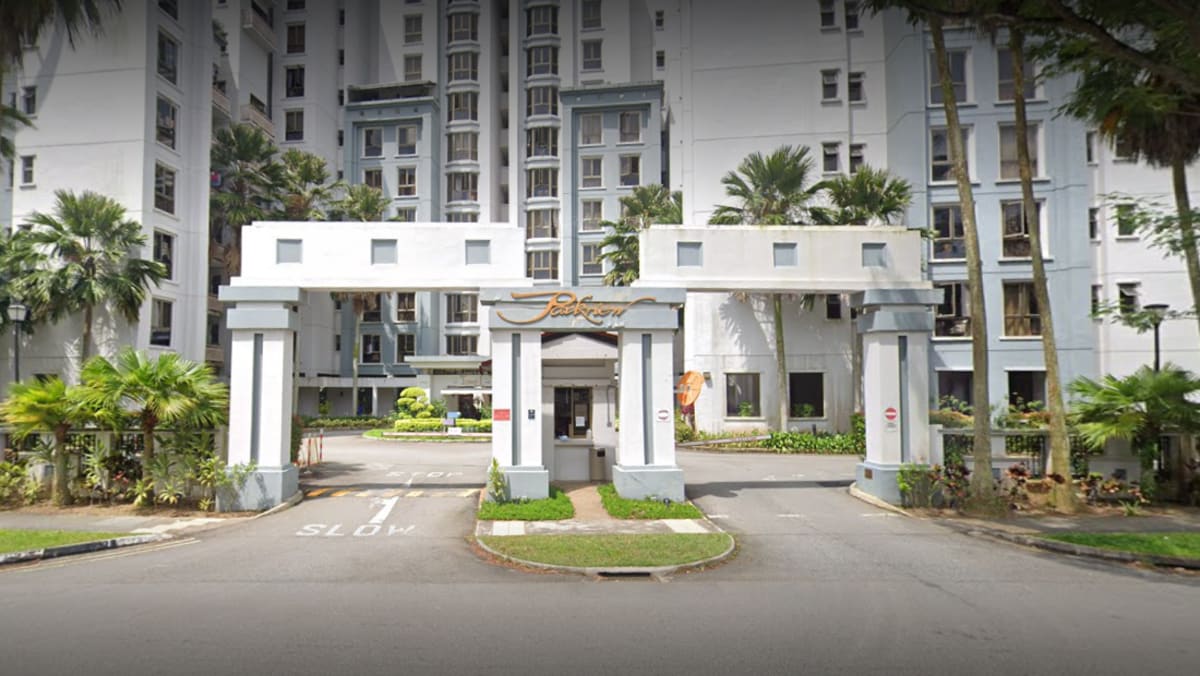
SINGAPORE: A man who bought a condominium unit for S$838,888 with his mistress in 2014, intending to sell it for shared profit in the future, turned to court to have the sale go through after their relationship fizzled out during the COVID-19 pandemic.
Mr Ng Hong Khiang, who was a businessman at the time, argued that the Parkview Apartment property should be sold and that he should retain 30.24 per cent of the sale proceeds, which was his contribution towards the purchase.
The property is registered wholly in the name of Ms Wu Cuiyun, Mr Ng's former mistress.
Ms Wu contested the sale, saying that whatever money Mr Ng had paid for the purchase price and costs of the property were a "betrothal gift" or eventual wedding present to her.
After considering the evidence, Justice Tan Siong Thye ordered in a judgment published on Lawnet on Thursday (Mar 2) that the property be sold, with 15.4 per cent of the proceeds paid to Mr Ng.
THE CASE
Mr Ng, who was represented by lawyers Adrian Wee and Lynette Chang from Lighthouse Law, sought an order from the court to sell the 1 Bukit Batok Street property.
He first met Ms Wu in 2010, when Ms Wu was working for him at a KTV lounge. They entered into a romantic relationship around 2011, when both parties were married to other people.
Ms Wu later divorced her husband. In 2014, Ms Wu and Mr Ng agreed to buy the condo unit, which had a purchase price of S$838,888.
Ms Wu, who was represented by Mr Baburam Dayalan Naidu from H.A. & Chung Partnership, does not dispute the payments of about S$273,000 that Mr Ng made for the property.
These include S$166,943.60 in a cheque for the cash component of the condo's purchase price and S$61,710 for stamp duties payable.
Ms Wu obtained a mortgage loan from a bank for S$630,000 in her name secured on the property. She has also been making monthly mortgage repayments to the bank.
According to Mr Ng, he owned a few properties at the time and wanted to avoid paying high stamp duty fees, so the property was purchased in Ms Wu's name instead.
Mr Ng, who is now in his 50s, argued that the pair had entered into an oral agreement before the purchase of the property.
The agreement included terms that both parties would contribute money to invest in the property, that Mr Ng would fund the cash component of the purchase price, stamp duties and legal costs for the purchase, as well as maintenance fees.
Another term of the agreement was that the property would be sold if either of them wanted to, with the sale proceeds divided in the proportion of their contributions to the purchase price and costs of the property.
MS WU'S CLAIM
In response, Ms Wu said there was no such oral agreement. Instead, she said Mr Ng's contributions were "a gift" to her, made because of their long intimate relationship and in consideration of all the years they had been together.
Ms Wu also said that because Mr Ng was married at the time, he knew he could not marry her. Therefore, Mr Ng told her that his contribution was intended to be a "betrothal gift" or wedding present to her, as Mr Ng had accepted that there would be a day when they would no longer be in a relationship.
She contested Mr Ng's claim that he had contributed about S$273,000. Instead, she said she gave two separate sums of S$130,000 and S$4,000 to him to pay for the purchase price and costs of the property.
Therefore, his contributions amount to only S$139,098, she said.
After hearing the evidence, Justice Tan found that Mr Ng had succeeded in making his case that the pair had agreed to buy the property together and sell it later at either party's requests, splitting the proceeds in proportion to their respective contributions.
He rejected Ms Wu's claims that the money Mr Ng had paid to her for the property was merely a gift.
She had changed her account from stating that it was a "gift" to saying it was her "dowry" if she got married one day.
The WeChat messages between the pair in February 2022 also showed no indication that the property was a gift, said the judge.
THE S$130,000
However, he found that Mr Ng had contributed only S$139,098 to the property because of the S$130,000 Ms Wu said she had given to Mr Ng.
Mr Ng had claimed that this amount was actually his money that he had given Ms Wu for safekeeping in the course of their relationship.
He claimed that sometime from the early or mid-2012 to the end of 2013, he gave Ms Wu S$5,000 in cash each month for safekeeping.
He did so to conceal his income from his wife and to set aside money for himself in the event he wished to make large purchases or investments. Therefore, when Ms Wu issued cheques totalling S$130,000 to him, she was just "returning" his money.
The judge rejected this argument, saying the numbers did not add up, and that it was inconsistent with his earlier affidavit, leading him to disbelieve Mr Ng.
Instead, the evidence showed that Ms Wu had given him S$130,000 for the property.
The judge ordered that the property be sold and for 15.4 per cent of the sale proceeds to be paid to Mr Ng.
Bagikan Berita Ini














0 Response to "Court settles contested sale of S$838888 condo unit bought by man and his mistress as investment - CNA"
Post a Comment